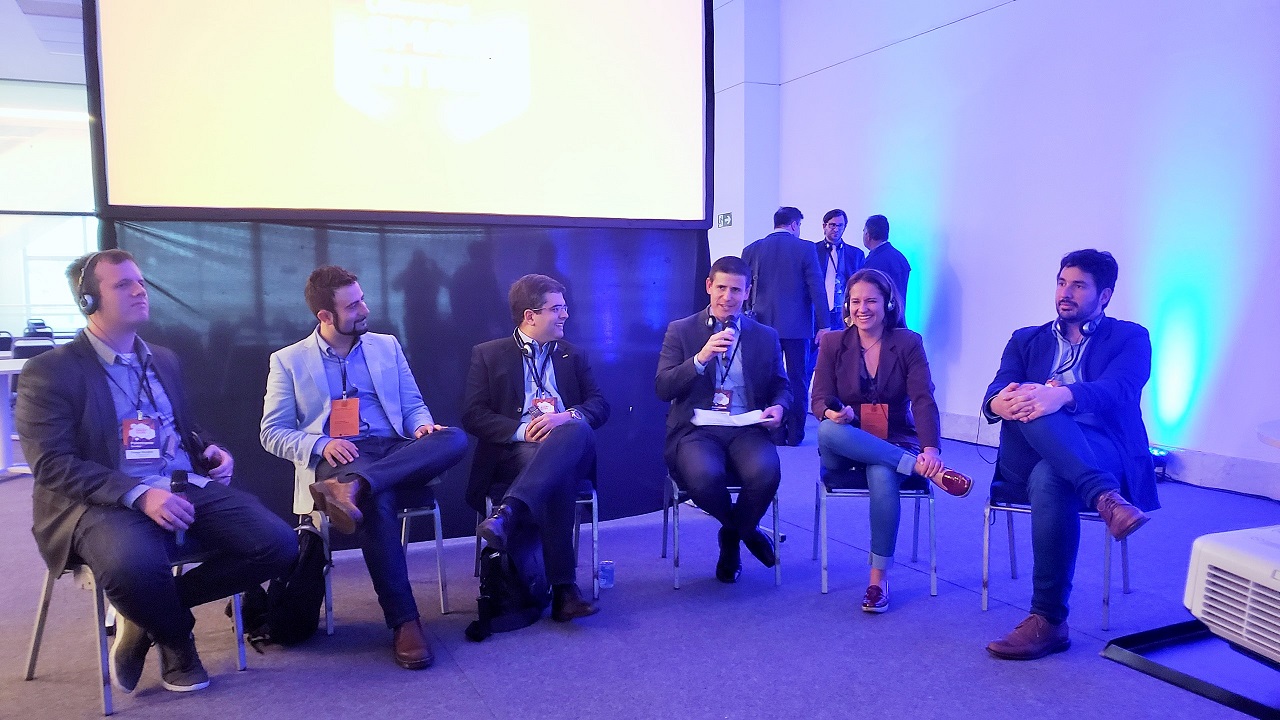
“Education and empowerment of citizens in connected cities” was the theme of the fourth panel in the afternoon, which was moderated by Andriei Guttierrez, Coordinator of the Regulatory Committee of ABES and the Movimento Brasil, País Digital, led by the association. He highlighted the importance of understanding the smart city as a more humane, more transparent city, in which people should not be dominated by technological determinism.
This position was endorsed by Ligia Zotini Mazurkiewicz, professor and founder of Voicers, who is engaged in the digital innovation and education ecosystem, where she connects with people who make new technologies to build more human futures. Based on concepts from Singularity University, Ligia considers that we are living in a moment marked by the 4Ds: digitalization of works, dematerialization of many intermediaries, democratization of access to information and services and disruption in almost everything on which we build our relationships and activities, a scenario absolutely challenging and that characterizes the reality of the new generations.
Against cyber harassment: Thiago Tavares, president of Safernet, added a more practical perspective to the debate, which is the need to make people aware of safe navigation, preparing them for the risks of the virtual world. The NGO maintains a channel for reporting cases of bullying and other types of harassment, in addition to maintaining a team of psychologists to guide those who are suffering from any type of threat through a helpline, which guarantees anonymity. Another front of action of Safernet is Education, with courses and lectures that address security on the web, among other initiatives. “Today, we have been following toys that have embedded IoT, as there are cases in the world that show that they are vectors of attacks”, reported Tavares.
Focus on society: In a more critical perspective, Fabro Steibel, executive director of ITS – Rio, considers that there is a limited vision of what makes a city smart, that we are experiencing a phase of fascination with sensorization, but that we need to generate innovation, unite it with the human aspect and promote a more open government. “People see the government as a wall in front of them, something insurmountable”, added Fabro, that is, an obstacle that does not maintain dialogue, which makes access to basic services difficult.
Citizenship and Engagement: Gustavo Maia, one of Colab's partners, brought to the debate successful examples of the use of platforms and applications aimed at citizenship, enabling more collaborative government programs and citizen engagement. “We encourage collaborative management, which includes everything from receiving complaints from residents of a municipality to public consultations promoted by administrators. The data is processed, followed up on demands and metrics for evaluation”, explains Gustavo. Colab has projects in Niterói (RJ), Santos (SP), Teresina (PI), among dozens of other locations, and was considered by the UN as one of the 5 best government and popular participation applications in 2013.
Technology for citizenship: Planned to contribute to the construction of smarter cities, AppCivico, represented at the event by Thiago Rondon, its founder and CEO, also has good examples of the use of technologies generating a positive social impact. This is the case of the Voto Legal platform, used for the first time in the 2016 elections, which allows politicians to receive cash donations or volunteer work for their election campaigns, in accordance with TSE rules and with data authentication based on blockchain technology, adding more modernity and smoothness in fundraising. “We are a technology company and we also provide consulting services, and the government is almost always one of the parties involved in our projects”, explained Thiago.












